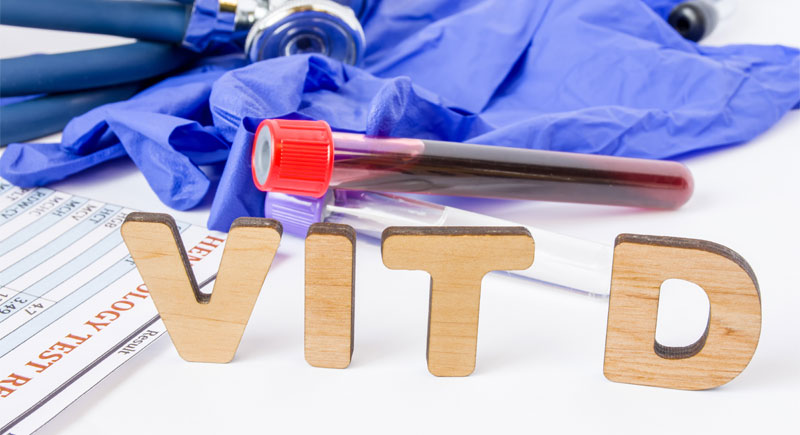- Home
- Growth Hormone
- Growth Hormone
- Growth Hormone Deficiency
- Growth Hormone Therapy
- Growth Hormone Injections
get startedThe Most Effective Hormone Replacement TherapiesWhat Every Man and Woman Needs to Know About Vitamin D
If you are a man or woman over 40 and want to live life to its fullest, you should consider adding a daily dose of vitamin D to your fitness regimen.
It is almost impossible to have any discussion about the value of supplementation and living an anti-aging lifestyle, and not include vitamin D. In fact, if you take no other supplement at all, you can probably add years to your life, and improve your health overall, simply with a daily dose of Vitamin D.
What Is Vitamin D?
Vitamin D is a fat-soluble vitamin, which means it is absorbed through the small intestine with dietary fat and is stored in body tissues. Vitamin D is largely responsible for maintaining a healthy level of calcium in the blood, and it also enhances the absorption of calcium. This is why most people associate vitamin D with its ability to improve and maintain strong teeth and bones. But the many health benefits of vitamin D go well beyond bone health, particularly for men and women. Vitamin D also plays a vital role in the development of skeletal muscle, which means that adequate amounts of vitamin D are essential for maintaining mobility, and optimizing muscle strength and performance as you age.
In addition, Vitamin D is a powerful anti-oxidant that has been linked to the prevention of many auto-immune and other degenerative diseases, even cancer. But perhaps the most significant attribute about vitamin D for men is its now known role in testosterone production.
Vitamin D production is stimulated by sunlight, yet, few of us spend enough time out of doors to get the optimal levels of vitamin D your body requires. In fact, recent research indicates that nearly 60% of Americans may have a vitamin D deficiency. This is why it is essential, especially during the winter months, that you consider eating more vitamin D rich food, or supplementing with vitamin D.
Vitamin D, Immunity and Longevity
Researchers in Germany found that vitamin D can improve your immune function by as much as 5 times. A US study, published in the Journal of Clinical Endocrinology and Metabolism found that over 50% of the American population is vitamin D deficient. That study concluded, "Abnormal levels of vitamin D are associated with a whole spectrum of diseases, including cancer, osteoporosis, and diabetes, as well as cardiovascular and autoimmune disorders."
Have you heard of Seasonal Affective Disorder (SAD)? This is a legitimate medical condition where people fall into a deep depression in the winter months. Many medical professionals believe the lack of exposure to sunlight during the winter, and subsequent decreased levels of Vitamin D, are at the root of SAD.
Because of its ability to kick-start your immune system, many believe that Vitamin D is more effective at preventing seasonal flu, than any vaccine. But vitamin D isn’t only something to be concerned about in the winter months.
Vitamin D, Testosterone and Sexual Health
Vitamin D also plays a key role in sexual wellness, particularly as you get older. Most people are under the mistaken belief that like other vitamins, vitamin D is a nutrient. Technically, it is not, it is a hormone – actually a “pre-hormone,” and as such it is responsible for stimulating the production of other hormones, not the least of which are the sex hormones testosterone and estrogen. Both men and women with vitamin D deficiencies have reported sexual wellness issues including low libido and sex drive.
There have been several studies that indicate a link between low levels of vitamin D and low testosterone in men. However, how vitamin D increases testosterone levels or why a vitamin D deficiency is associated with an increased risk of Low-T, remains somewhat of a mystery. All the current research seems to suggest that there is something about testosterone production that requires the presence of vitamin D, but the actual mechanism of action remains elusive. We do know that there is a directly proportional relationship between levels of vitamin D and levels of both total and free testosterone in the blood.
Recognizing this link between vitamin D and testosterone is important, because we know that it is normal for both men and women to experience a decline in testosterone as they age. It is possible that vitamin D supplementation can help make up for this loss.
Both testosterone in men, and estrogen in women, also effects the production of serotonin, and other “feel good” chemicals in the brain. This can also explain why decreased levels of vitamin D can effect mood and lead to depression. Obviously, depression can also impact your sex life.
Am I At Risk for Vitamin D Deficiency?
Certain groups of people are at higher risk than others for vitamin D deficiency.
- Vegans, because they tend to avoid vitamin D rich foods, such as meat, eggs and dairy products.
- People who are obese
- People with type 2 diabetes
- Older people, and others who tend to spend more time indoors
- People with darker skin, because darker skin tends to produce less vitamin D, even when exposed to the sun
- Persons with any disease or condition that interferes with fat absorption
Because the symptoms of vitamin D deficiency mimic or overlap with many other conditions of “growing older,” it can be difficult to tell if a lack of vitamin D alone could be the source of your difficulties, however, generally speaking, the symptoms of vitamin D deficiency include:
- Tiredness
- Body aches
- Irritability
- Depression
- Sexual health issues
The only way to know for sure is to see your doctor, and have your blood tested for your level of vitamin D.
Can I Get Enough Vitamin D from Food?
The main source of vitamin D remains sunlight. There are some foods that contain vitamin D, such as oily fish like salmon and mackerel, and Vitamin D enriched dairy products, juices and cereals. However, if you are not getting enough vitamin D from sun exposure as is the case with many of us, most doctors agree that because it is in so few foods, you really cannot get your daily requirement of vitamin D from diet alone.
An effective way to boost your vitamin D levels is to take a daily supplement. We recommend taking at least 800 IU of vitamin D3 per day. D3 is the form that is stored by your body, so vitamin D3 supplements tend to be the most effective.
Some men and women suffering from vitamin D deficiency could benefit from much higher doses, upwards of 5000 IUs or more per day.
But, if you suspect you may be vitamin D deficient the only way to know is to have your blood tested. And, while you are at it, we can also test your testosterone levels, and see if you may be a candidate for the many life changing benefits of testosterone therapy.
You can also download presentation about Vitamin D.
read this next
- Growth Hormone Therapy




























